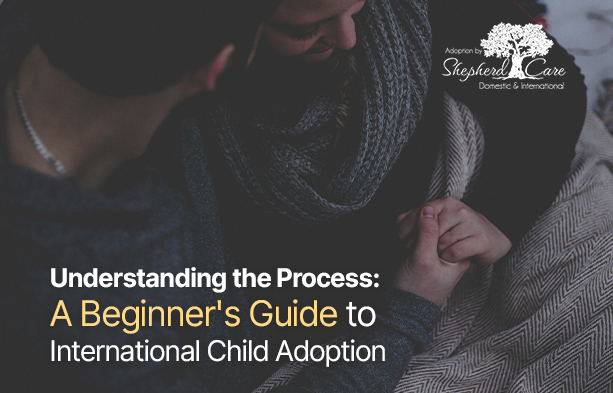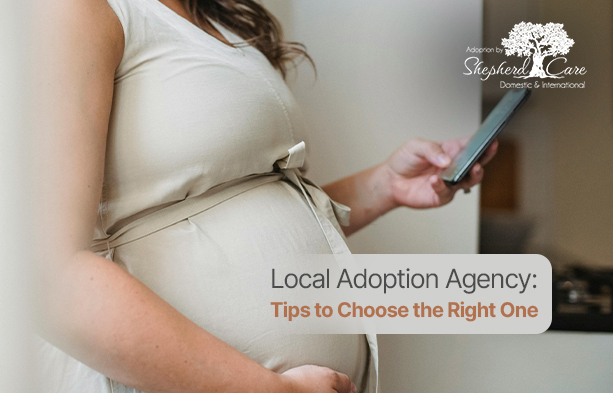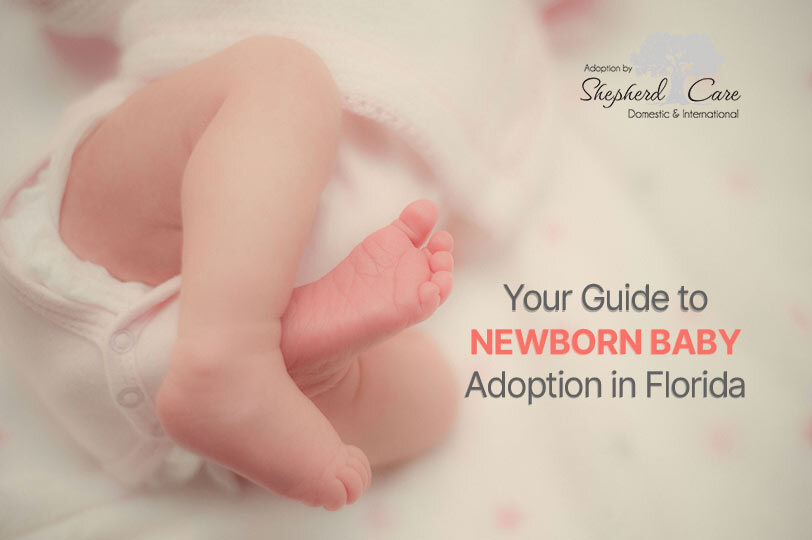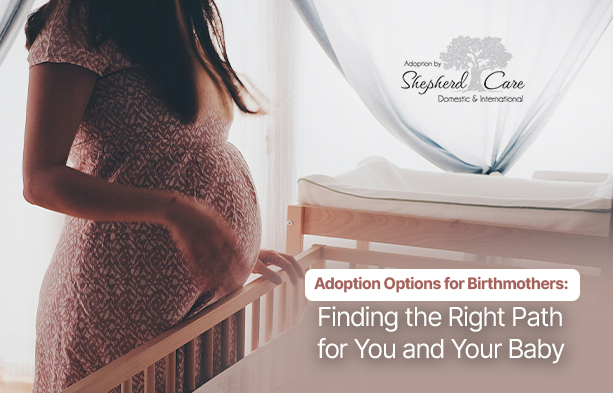When a woman decides to put her baby up for adoption, it’s a decision that comes with a range of emotions and reflections, which may include remorse. At Adoption By Shepherd Care, we understand the complexities and challenges involved in this process. In this article, we’ll explore what a woman may consider when making the difficult decision to place her child for adoption.
Key Takeaways
- Pre-adoption expectations and post-adoption support are crucial factors in managing adoption remorse.
- Adoption remorse is a natural emotional response and does not imply a wrong decision or an unfit adoptive family.
- Understanding the emotional stages of adoption remorse can help in coping and finding healing.
Factors to Consider When Putting Your Baby Up for Adoption
Putting your baby up for adoption is a deeply personal decision, and several factors should be considered during this process. Pre-adoption expectations can significantly influence the duration of adoption remorse. Unrealistic or idealized expectations may lead to longer periods of remorse if unmet. On the other hand, approaching adoption with realistic expectations and an open mind tends to result in shorter periods of remorse.
Post-adoption support is another crucial consideration. Having access to comprehensive post-adoption services and resources, such as support groups and counseling, can make it easier to navigate through any feelings of regret or sadness. These resources offer guidance and reassurance during challenging times.
It’s essential to recognize that adoption is a complex journey with ups and downs. Adoption remorse is a natural emotional response and does not indicate that the decision was wrong or that the adoptive family is unfit. With appropriate support, this emotional journey can be managed.
Understanding the Emotional Stages of Adoption Remorse
To navigate the emotional journey of adoption, it’s essential to understand the various emotional stages:
- Shock and Disbelief: The initial stage may involve questioning whether the right decision was made and doubting the ability to provide for the child. Seek support from loved ones or professionals during this self-reflective period.
- Sadness and Grief: This stage may involve mourning the loss of not raising a biological child or feeling a sense of emptiness. Understand that grieving is a normal part of the adoption journey.
- Acceptance and Hope: As you progress through the stages, you may feel acceptance and hope. Acknowledge that the decision was made out of love for the child’s best interest, and find peace within yourself.
Self-reflection is crucial throughout these stages, allowing for an honest evaluation of emotions and thoughts. Activities like journaling or counseling sessions provide opportunities for introspection, leading to personal growth and healing.
Remember that the duration of adoption remorse varies among individuals. By understanding these emotional stages, practicing self-reflection, seeking support when needed, and being patient, you can find healing on your adoption journey.
Seeking Support When Coping with Adoption Remorse
Coping with adoption remorse can be challenging, and seeking support is essential. At Adoption By Shepherd Care, we encourage you to reach out to loved ones or professionals who can guide you through this challenging journey.
Consider joining support groups specifically designed for individuals experiencing similar feelings. These groups offer a safe space to share your feelings and experiences with others who understand what you’re going through. Connecting with people who have faced similar challenges can provide a sense of belonging and validation, alleviating the loneliness often associated with adoption remorse.
Therapy options are also available for those struggling with adoption remorse. Professional therapists trained in adoption-related issues can provide valuable guidance and tools to navigate the emotional rollercoaster that comes with this experience. Therapy offers a confidential setting for exploring your feelings, working through grief and loss, and developing healthy coping mechanisms.
Seeking support doesn’t imply weakness; it’s acknowledging everyone needs help during difficult periods. Surrounding yourself with understanding individuals who genuinely care about your well-being is an essential step towards healing and finding peace within yourself.
You don’t have to face adoption remorse alone – reach out today and let the love and guidance of others help you on your path to healing.
Healing and Moving Forward After Adoption Remorse
To heal and move forward after experiencing adoption remorse, it’s essential to prioritize self-care practices that promote emotional well-being. The healing process may be challenging, but with self-reflection and self-compassion, you can find the strength to navigate this difficult time.
Engaging in activities that bring joy and relaxation is crucial for self-care. Whether it’s taking a walk in nature, practicing yoga or meditation, or indulging in a beloved hobby, prioritize self-care as part of your daily routine to alleviate feelings of sadness and guilt.
Self-reflection is another key step towards healing. Reflect on your feelings and emotions surrounding the adoption decision. Consider writing in a journal or talking to a trusted friend or therapist about what you’re experiencing. Acknowledging and processing your feelings can help you better understand yourself and work towards acceptance.
Additionally, seeking support from others who have experienced adoption remorse can be incredibly beneficial. Connect with support groups or online communities to share your thoughts and concerns without judgment. Talking to others who have gone through similar experiences can provide validation and comfort.
Remember to be patient with yourself during this healing journey. Healing takes time, and it’s okay to have setbacks along the way. Be kind to yourself as you navigate through these challenging emotions.
Strategies for Overcoming Adoption Remorse
Overcoming adoption remorse may require professional therapy and self-care techniques. Seeking a therapist who specializes in adoption-related issues is a crucial first step. Therapy sessions may involve individual or group counseling, depending on your preference and needs.
Practicing self-care techniques is equally important. Taking care of yourself physically, emotionally, and mentally is crucial. Engaging in activities that bring joy and relaxation, such as regular exercise, journaling, mindfulness, meditation, or spending quality time with loved ones, can help alleviate stress and promote well-being.
Remember that healing takes time, and adoption remorse is a complex emotion. By seeking professional guidance through therapy and incorporating self-care techniques into your routine, you can work through these feelings in a healthy way.
Summary
Adoption remorse is a complex emotional journey that varies in duration for each individual. Factors such as the circumstances of the adoption, personal coping mechanisms, and support systems play a significant role in how long it lasts. Seeking support and allowing yourself time to heal are crucial steps in overcoming adoption remorse. With patience, self-care, and understanding, it is possible to move forward and find peace after experiencing these complex emotions.






